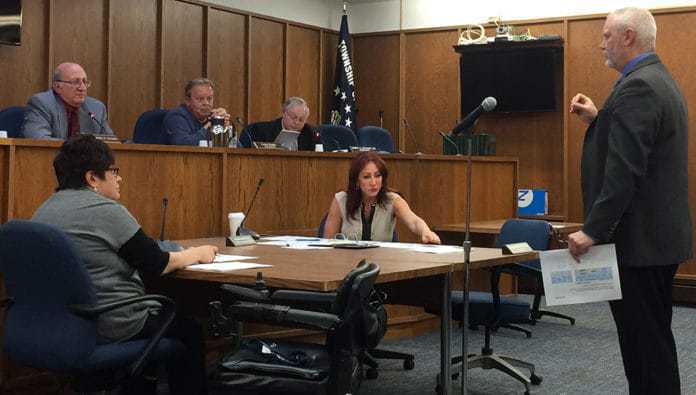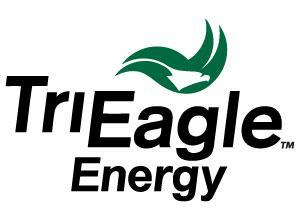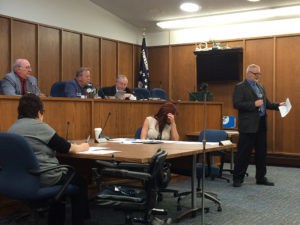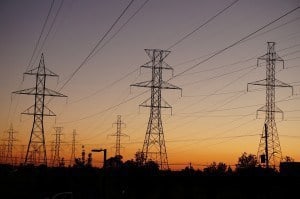
MANCHESTER – The Township Council signed a deal with a third party energy company that would reduce the cost of most residents’ electric bills over the course of the next two years.
 The deal comes from something called energy aggregation. Basically, it means that the electricity coming through the wires will be coming from a different company than Jersey Central Power and Light. Every electric bill has two different charges: one for electricity and one for the delivery of the electricity. The delivery, which includes the maintenance of the power lines, will still be JCP&L’s responsibility. That portion of the bill won’t change. However, the cost of the electricity will be coming from a less expensive third party.
The deal comes from something called energy aggregation. Basically, it means that the electricity coming through the wires will be coming from a different company than Jersey Central Power and Light. Every electric bill has two different charges: one for electricity and one for the delivery of the electricity. The delivery, which includes the maintenance of the power lines, will still be JCP&L’s responsibility. That portion of the bill won’t change. However, the cost of the electricity will be coming from a less expensive third party.
The electricity will be coming from a company called TriEagle Energy, a company headquartered in Texas.
It will be a 24-month contract, for 7.99 cents per kilowatt hour. It will be a fixed rate. It is 20 percent lower than the current JCP&L rate, and 15.5 percent lower than what the JCP&L rate will likely be when it changes in June, said Robert Chilton, executive vice president of Gabel Associates, the consulting firm retained by Manchester to work on this deal.
 The only thing that could change that rate is if there is a government regulation that impacts the energy company, and they would pass that charge on to consumers, Chilton said. Those kinds of regulations would also be in effect for JCP&L electricity customers.
The only thing that could change that rate is if there is a government regulation that impacts the energy company, and they would pass that charge on to consumers, Chilton said. Those kinds of regulations would also be in effect for JCP&L electricity customers.
“It’s almost certainly the lowest rate for any town in New Jersey in the JCP&L area,” he said.
There are about a dozen other towns in New Jersey that use TriEagle, he said. They are ranked very highly internationally as a business.
TriEagle had provided three different bids. One was for 24 months. One was for 18 months. The one for 12 months was actually the cheapest deal, providing a rate of 7.694 cents per kilowatt hour. It would have been 23 percent lower than the current JCP&L rate.
Councilman Sam Fusaro said he did not want to go for a 12-month rate because there was a risk that it could go up at the end of those 12 months. It was safer to get a locked down rate for two years.
This will impact residents a great deal, Fusaro said. Some neighborhoods in town are not hooked up to gas. They have electric heat and stoves. Based on an average energy bill, the entire township could collectively save $3.5 million.
It would apply to approximately 21,000 residential customers who are not currently using solar panels or another third party energy company, officials said.

The decision was made at a special meeting held at 2 p.m. on February 28. The bids from the energy company were opened at 10 a.m. Chilton then looked over the bids and made a presentation to the council.
Even though the Township Council met again later that night for their regular meeting, they needed to have a special meeting before the close of business, Fusaro said. Energy rates fluctuate so often that the deal had to be signed on the same day that the bids were opened.
There were about 15 residents at the meeting. A few of them came up and asked questions about the procedure.
People asked how residents would know if paperwork from TriEagle is a legitimate letter and not one of the many ads they get as junk mail every month. Officials said the material will have the Manchester Township seal on it.
Mayor Ken Palmer asked if TriEagle would ever subcontract the energy out to yet another third party company. Chilton said that Manchester would have to approve any change.
Council members asked about the fee for Chilton’s company, Gabel Associates. They are earning a fee of .00042 cents per kilowatt hour. That figure is coming out of the TriEagle bill and will not come from residents or from the township. Even the township’s legal fees and other costs associated with doing business will be covered by TriEagle.
Councilman Charles Frattini was still not sold on the process. He was the lone no vote. Craig Wallis, Fusaro, and James Vaccaro voted yes.
Frattini said his main opposition was that residents were automatically included unless they opted out. He said that all residents should be given a choice at the beginning. They should have to opt in instead of opting out.
“Businesses have to opt in, and I can’t figure out why residents have to opt out,” he said. He did not want residents to be locked into a service they did not want only because they did not opt out during the period of time they were allowed.
“I appreciate the savings, but the ancillary problems have to be resolved before I vote for it,” he said.
Chilton said that people have to opt out in the contract to get a better deal from electric companies. The benefits for the companies bidding on this contract come from bulk, so if the township has a large number of people automatically opted in, then the companies can make better offers to the town. Companies would not know how to bid without knowing the number of residents that would be customers. “The opt-out model is the best way to get low prices.”
Wallis admitted he was skeptical going into the process, but after seeing the savings, he was a supporter of the program.
Vaccaro thanked former Councilman Brendan Weiner for his work on this project. Weiner stepped down from the council recently because he was moving out of town.
Requests for proposals were sent to about 80 licensed electrical power suppliers in JCP&L territory, Chilton said. Many of them replied. Of these, four companies’ bids were shown to be qualified: TriEagle, Constellation New Energy, IDT Energy, and South Jersey Energy,
A Lengthy Process
The township began looking into energy aggregation in 2013, Fusaro said.
For a while, they were working with other towns to get a group discount. Stafford Township had initiated it, and Manchester and Lacey jumped on board.
Manchester later left the deal. Fusaro explained after the meeting that Manchester wanted certain language written into the contract, and Stafford didn’t want it.

If the JCP&L rate dropped below the rate offered by the third party, Manchester wanted to be able to renegotiate their contract, Fusaro said. They wanted language in the contract that they would have 14 days to negotiate a better deal in case this happened. If not, the contract would be null and void. The Stafford contract did not have this, but Manchester’s contract with TriEagle does.
Ultimately, the deal offered to Stafford was not good enough for them to take, Stafford’s Business Administrator James Moran said at the time. They receive their electricity through Atlantic Electric. Because of the differences in tariffs and other issues, they were only offered a 10 percent reduction. So, they will go out to bid another time in the future.
Lacey, meanwhile, signed with South Jersey Energy, which was able to provide a 13 percent reduction for 20 months, starting April 1. Their price will be $0.08655 per kilowatt hour, said Lacey’s Business Administrator Veronica Laureigh.






